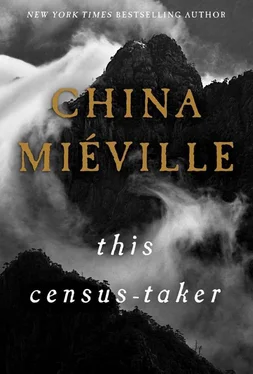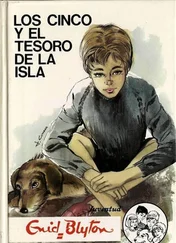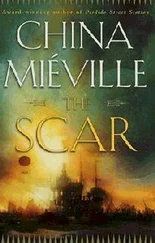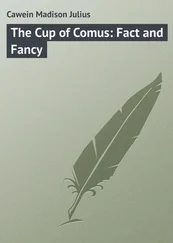No one punished me for the noise. At a certain point I stood up from the rag bundle where I’d been placed and recited one extended howl into the staring face of an imagined dead woman. Samma and Drobe rose and came to me and she picked me up and carried me outside. She was not so big but I recall no hesitation or effort on her part.
The air blew through me. I’d never before been in the town so late, though I’d looked down on it untold times. Previously I’d only ever seen streetlamps either unlit or in their initial fitful waking or lit from far enough away that they were glimmers like the arses of phosphorescent bugs. Now Samma set me on my feet and I ran to stand beneath the closest and gaped wet-eyed up at its filament like a visitor to a shrine.
In the generating zone on the other hill the unseen turbines spun fast to make this light that replaced the moon, against which the drop was so dark. The houses to one side of me and the railings by that obscured void to the other converged before me on the second hill, in the dimmer quarter that had once cradled my mother.
“Moth boy,” Samma said. She sounded fond. “If you could fly you’d get right up there and touch the wire and die.”
“You know what happens when you die?” Drobe said. “Do you know church?” he said.
I ran forward again, hearing nothing of my own steps. Samma grabbed me, held me as tight as a harness, but I still felt as if I was running for those southern parts, or then as if the night itself had stopped to pause my investigation.
Did my mother walk ahead of me? Even when she told stories of her earlier life she never seemed nostalgic, and I could think of no reason that death alone would change that. If she took that revenant route it might be she had no choice, that she had to pass through those familiar failing suburbs to scatter cats and go without a shadow past their hides in the roots of walls and carts sat so long wheel-less on their axles that they were less than landscape. To think of her made me afraid again, even in my abrupt nocturnal exultation, so the face I gave her was the sexless wooden one from the rubbish. With that she took the tight alleys in the shadow lee of geography.
It wasn’t all collapse. Neither side of the town was ever only flyblown or air-bleached plastic or runoff and the slippage of industry but those were the castles she’d sought to live in, a cruder form, and it was by them that I considered her.
Someone would come to find strangers and those born of strangers, Drobe said, repeating things he’d heard. People had been sent out to perform such tasks, he said, to take number, and now someone was coming. I didn’t understand him. It seemed I’d spoken of the trash head in my ruminations, and that mention had provoked him to interrupt me with his garbled information.
“From the same place is what I’m saying,” he said. “I know that head. In the dump-house? That’s from when there was a time — where the counters come from — they were scared of all the engines and they smashed them all up. The ones that looked like that.”
Before we were born, rumors of distant insurrection had meant the ordering of destruction, the gleeless dismembering of all such geared constructed figures. One of a sequence of imbricated catastrophes our town had imported from the little coast city, which had itself succumbed to the anxiety, as we all did with so many, as a contagion from a vast other country.
Later I would come to understand that the doll’s head I’d given my dead mother must have been left as a sole remnant of the moving statue bodies, a disavowable memorial to molder on the tip while every other memento was broken and gone.
“First that,” Drobe said. He tried to make me look at him while he told me these stories. “With the mechanicals. Then they had problems on the trains. And there was a war. Two wars! One inside, one out.” Samma looked at him, guarded. Who had been telling him this? “Years ago. And it all ends up with people sent to take stock, to count foreigners. Like your father,” he said. “Can you hear me?”
I only just listened. I’m surprised now by how much of what he said I remember. I wouldn’t think of the murderer then; it was the murderee who had my attention. I was trying to hold her gone hand.
“Your mum’s in heaven now,” Drobe said.
I looked down at the cobbles. He said it to be kind.
—
For breakfast we scooped clean our pot with tough folded leaves. While I was eating the last of our cold stew the officials found me.
The hunter came into the room. He walked slowly through the dust and the struts of light toward me in my corner. He picked a way heavily through upended furniture frames and children staring at him, mouths frozen open. The schoolteacher waited at the doorway, her face set.
“So,” the man said. He held up his empty hands as if to show me something, as I’d done when I ran down the hill. “We went to your father.”
My blood went fast. The man knelt gently. “Are you sure you saw what you saw?”
“Hey,” said Drobe.
He was in the rafters. Drobe would eat his breakfast half-standing in a high corner, hunched under the roof and looking down like a minor household god.
“You saying he’s a liar?” Drobe said.
The hunter cocked his head and pursed his lips.
“Here’s how it is,” he said carefully. Everyone listened. “We went up to your father’s house. Now, he told us that nothing you said happened happened. Hold on now, boy, hold on.” I hadn’t said anything and I don’t think my face had moved: Samma, though, was hissing.
“No one’s angry with you,” the man said. “What your father told us is you came when your mother and him were having an argument. He saw you but you’d already seen them going at it and then you ran away and so he went to try to find you in case you were scared. Anyway. What happened was your mother said she’d had enough of it all and when he came back from looking for you she’d gone. She went away, boy. Took a long way maybe so as not to come through the town.” That idea startled me. “I don’t know. That’s the fact of it, is what he says.”
He watched me closely.
I said, “He killed her in the top room.”
The teacher shook her head.
“We looked,” the hunter said. “There’s no blood there, boy. You know she went away before, your mother?”
“To that port,” I said, “by the sea,” and in my head I saw the cracked and dirty window above a door and a glimpse of the white walls of a communal hall. “That was before—”
“She wrote a letter,” the teacher interrupted. “She said goodbye.”
I could only stare at her, her marked, expressionless face.
“How’s your reading?” the hunter said. “Your dad found a letter on the table, he says. We have it. It’s not for him. It’s for you.”
The letter said, I will not stay here any more.
They took me to the school to show me. I’d never been inside before: I was an uphiller with no money for lessons.
Drobe stood by the classroom door like my guard and Samma stood by me, watching my mouth move. The hunter sat me in a child’s chair-desk, the furniture combined. He gave me the letter.
It said, I must go away because I am not happy on this hill. I will go away. Perhaps you will be angry I hope you will not you might be sad also. I am sad. But I will not live here any more. You do not have to tend my garden but I give it to you if you want. You will be all right in this house your father will take care of you as I have I am sorry I must go but I must I cannot remain any more. Your loving mother.
—
The teacher read the letter aloud. She saw my eyes going over the lines, she saw my panic and I think she didn’t believe I could read. When she was finished the hunter said, “So. Maybe what you saw was that. They were fighting. Then while your dad was looking for you your mum got angry and she went away. Do you think maybe that’s what you saw?”
Читать дальше












